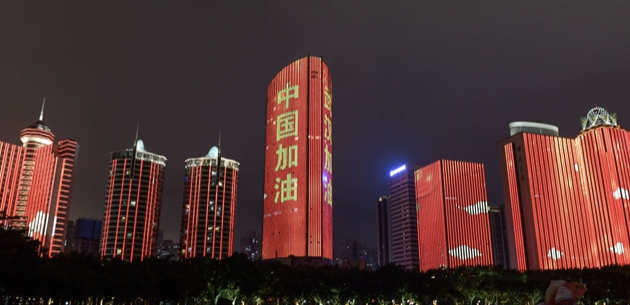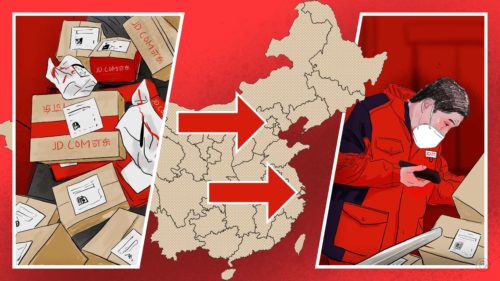Beijing eager to declare COVID-19 contained, but economy may take weeks to restart


Screenshot — positive vibes on Xinhua News Agency’s home page. The characters mean “Go China!” (中国加油 zhōngguó jiāyóu)
For a week now, top officials in Beijing have been thinking up new ways to vaguely describe progress in fighting the COVID-19 epidemic. A week ago, just a day before the change in diagnostic criteria made the data more opaque, Xí Jìnpíng 习近平 said that the situation had shown “positive changes” (积极变化 jījí biànhuà). Yesterday, Lǐ Kèqiáng 李克强 noted “positive results” (积极成效 jījí chéngxiào), as other officials praised the number of cured cases surpassing 10,000 and the official number of infections outside of Hubei declining.
Today, Xi used the phrase “visible progress” (明显成效 míngxiǎn chéngxiào) in a phone call with British Prime Minister Boris Johnson to describe the state of epidemic control. He added that the immense efforts of China had “effectively stopped” (有效阻止 yǒuxiào zǔzhǐ) the global spread of the virus (English, Chinese).
In a commentary titled “Coronavirus won’t stop China’s march towards rejuvenation,” Xinhua repeats many of the same notes, and adds, “It is widely agreed among domestic economists that the outbreak will not undermine the fundamentals of China’s highly resilient economy.”
However, it may be too early to tell what the longer-term effects of the outbreak may be. In the news today:
- “China is still weeks away from getting its economy back up to speed,” the South China Morning Post reports, because:
Less than one third of China’s 291 million migrant workers — citizens with household registration in rural areas but who work in towns and cities — had returned from their hometowns by last Friday, Liú Xiǎomíng 刘小明, a vice-transport minister, said at the weekend.
The transport ministry said passenger traffic on China’s roads, railways and aeroplanes was 12 million people on Sunday, about 20 percent of the volume on the same day a year earlier.
- Despite some businesses getting approval to reopen in eastern provinces, “the difficulties come from things like labor shortages stemming from people being prevented from moving around as more cities in China are locked down,” Caixin reports. “One executive at a Hangzhou retail exporter said the green light from local authorities would do little to address its biggest problems, which were supply disruptions and a lack of workers.”
- “Just 34% of nearly 1,000 small and medium-sized firms said they could survive for a month on current cashflow, a recent survey by Tsinghua University and Peking University showed,” per Reuters. “There could be big layoffs,” added a Beijing-based chief economist at Zhongyuan Bank.
—Lucas Niewenhuis






